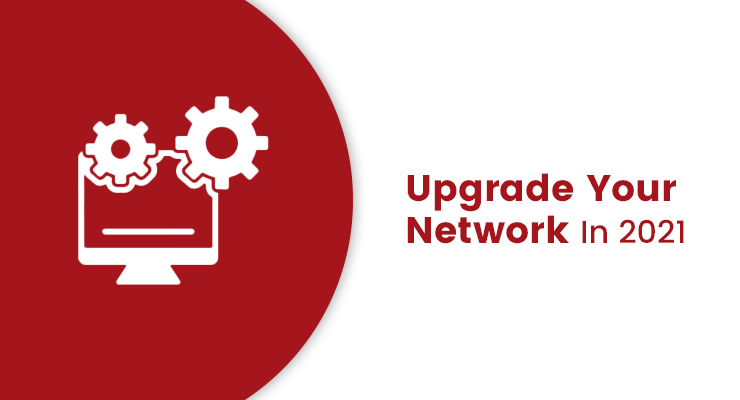Upgrade your network cause Your network affects every aspect of your business, and downtime or making the wrong decisions will negatively impact everyone.
Whether you’re replacing outdated technology or expanding your network infrastructure, regular upgrades are essential for keeping your business productive and profitable as well as your data secure. On the other hand, if your network is already fit for purpose to upgrade your network, upgrading too early will mean unnecessary expenditure and hassle.
If you’re the one responsible for making that call, you should be able to evaluate your network’s suitability and decide whether it really needs an upgrade now, what type of upgrade, and how to make the switchover with as little impact on the day-to-day operations as possible.
What types of upgrades?
Networks aren’t a one-size-fits-all solution – they’re as diverse as your business needs them to be. Networks can be upgraded to:
- Expand your range or capacity:As your business grows, so does the need of upgrade your network. You could be adding more computers to your office, linking to remote locations or hiring more cloud storage to host your growing data.
- Improve security:Network upgrades are an opportunity to improve your business’s resilience to cyberattacks. Updating hardware and software will help protect your company’s data and the privacy of your staff. You may want to upgrade so that you can have a more robust disaster recovery plan.
- Boost productivity:Like any good investment, your network upgrade should pay for itself before long by improving productivity, saving time, and reducing maintenance.
You should also check capacity and usage statistics to see whether network speeds and storage need improvement. If you don’t have the resources or the know-how to evaluate your network capabilities, you can contact us for a complimentary network assessment
Planning the upgrade your network
You first need to think about practicalities, such as:
- How many devices need to connect to your network?
- Will people connect to your network outside the office?
- What type of software will they be using?
- How much data is sent and received every day?
- Backup and Disaster recovery plans?
- Network security features?
You’ll never truly be finished upgrading your network but, through careful planning and projections, you can establish a flexible network capable of supporting future growth. Technology comes and goes, but the infrastructure you lay down today can future-proof your business for years to come – not to mention making subsequent upgrades a lot easier.
On Premise or Cloud?
One decision you could face when rolling out your new network is whether to replace your on-premise network with a network hosted in the cloud.
While cloud computing is more convenient, on-premise networks have traditionally been faster and more reliable, as they experience less downtime and don’t have the same range of limitations. This has started to change, however, and cloud services also offer adequate security for most business needs.
For many companies, a hybrid model is the ideal middle ground – storing less sensitive data and apps in the cloud while keeping more critical data on your premises. This can reduce costs and improve convenience while ensuring you’ll always have access to your data when you need it.
And that’s the key consideration – are you providing the people who use your network the speed, access, and capabilities they need? If not, then it’s time to upgrade and ensure you’re not holding your business back.
Pulse Tech offers complete solutions for upgrade your network tailored to your business size, Line of Business software requirements, and future goals. Call us today for a complimentary assessment.


